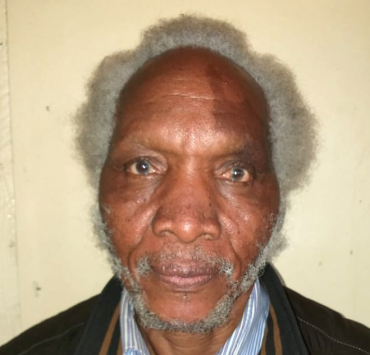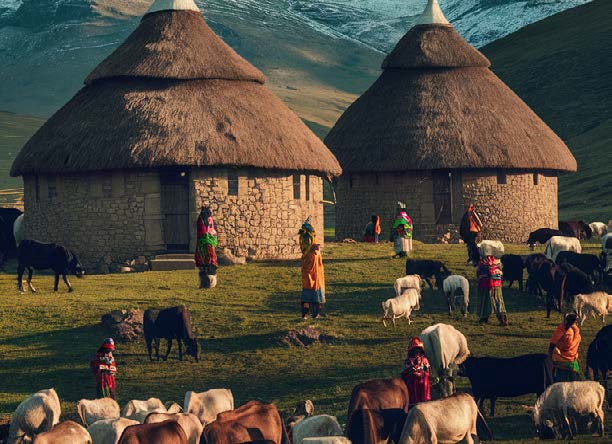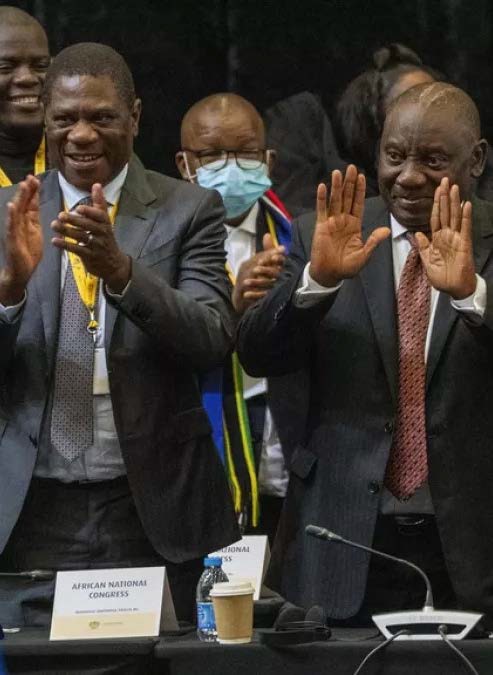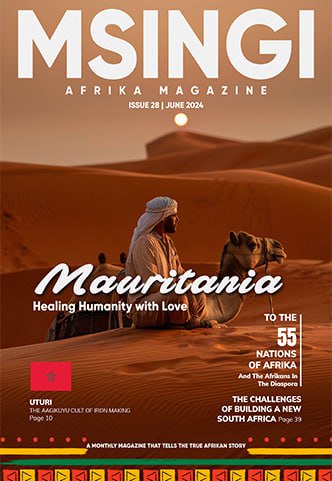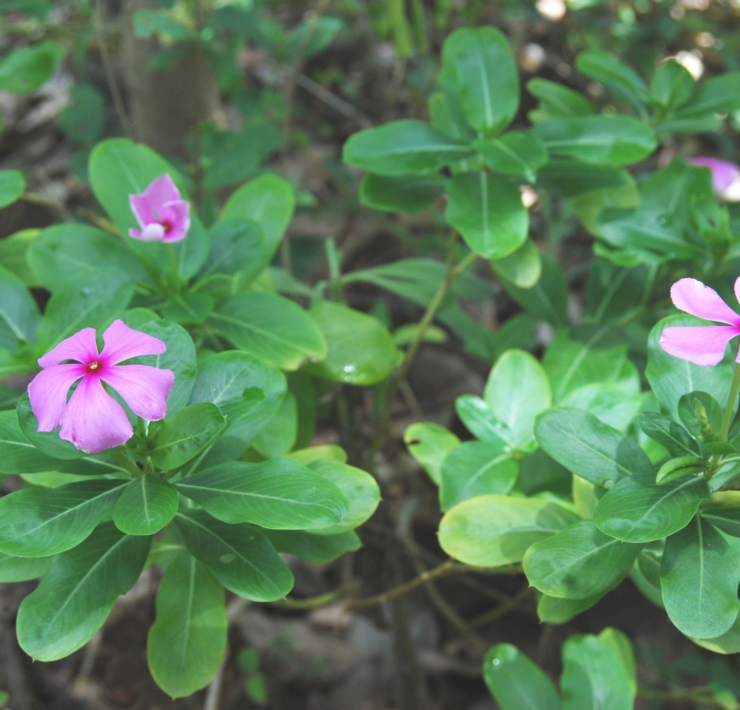Afrika’s Heroes
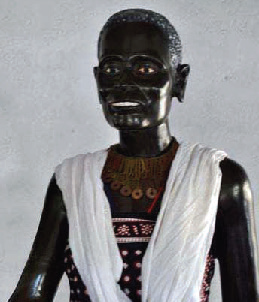
Chioma Phillips is the Editor of Msingi Afrika Magazine and…
MEKATILILI WA MENZA: Terror of the British Imperialists

Out of the migrations and the territorial wars of the peoples of Afrika, a community comprised of nine sub-tribes, known as the Midzichenda/Mijikenda (nine families/tribes) settled at the east coast of Kenya. Two of these communities, the Digo and the Giriama, grew in prominence and in size, the latter giving birth to a woman who would set in motion a series of events that boggled the minds of the hostile British invaders and land grabbers. It is no surprise that of all the tribes, the Giriama were chosen, they were known for being fearless in nature and for their clever war tactics. And so from the rhythmic lands of the east coast of Afrika, where the swaying palms move in tune with the wind of the whispers of the Holy Spirit, a deliverer, later named Mekatilili wa Menza arose.
Born Mnyazi wa Menza (Mnyazi child of Menza) in the mid 1800s, in Mutara wa Tsatsu, Ganze Village, she was the only girl out of five children. She and her family were of modest means. Her earliest influences appear to have come from the stories her mother told her that were first spoken by Giriama Prophetess Mepoho who said that men with hair like sisal, who moved on the air, water and land in vessels would come and bring changes some good and some bad. Mnyazi would have been told that this was about the white man who would come to the east coast to oppress her people, but that Mepoho had also prophesied that a girl would be born to the Giriama community who would withstand them. Mnyazi was also powerfully impacted when she witnessed the sheer brutality and callousness of the Arab slavers firsthand, during a trading visit she made to Malindi. The Arabs ruthlessly and selfishly tore one of her brothers, away from his family… and he was never seen again.
Mnyazi was married to Dyeka wa Duka and was renamed Mekatilili when their first son, Katilili, was born (Mother of Katilili). Mekatilili was a bold woman, who actively participated in traditional women’s groups known as Hifudu and Makushekushe, eventually rising to lead the latter. By this time, the British were imposing their illegitimate authority over Kenya, forcing the Giriama to work as manual laborers in their plantations, conscripting them into military service to fight in WWI, collecting taxes to finance their illegal rule and inhibiting the free movement of the young men of the community. Mepoho’s words must have been ringing in Mekatilili’s ears, along with freshly opened wounds of the memory of her brother’s abduction.
Following Dyeka’s death, Mekatilili rose up with fire in her belly, moving around her community, rallying the people together. It is said that she used the Kifudu funeral dance to call meetings. She drew people together around their traditional shrines and urging both men and women to take oaths denouncing all puppet rulers and proclaiming their support for the Giriama Council of Elders. The Makushekushe oath for the women and the Fisi (hyena) oath for the men; this last was said to be one of the most deadly and that traitors who had taken this oath could die for their betrayal.
The activation point came when in 1912, the British dared to post a district officer to Mwangea. Prior to this the Giriama had not felt the pressure of the colonial administration. The British began to impose tax and forced labor on the Giriama. The Giriama were a powerful people, certainly not a people inclined to comply with the authoritarian machinations of the British and they were responding to her call.
By 1913, Mekatilili was a woman of great influence and authority and she did not shrink back from the colonial invaders’ imposed presence either. She was ready and willing to go to ‘Bibi Queen’ – the ‘mother’ of the Europeans – to protest the unfair and unjust treatment by the foreign invaders. It is said that at one meeting she got into an argument with Arthur Champion, the British Administrator and she was so incensed that she slapped him. The Giriama men rallied around her to defend her, the British cowards responded by firing into the crowd and withdrawing with their man in tow. Under Mekatilili’s influence, the Giriama fought back against the British, forcing them to retreat to Rabai; the British retaliated against the guerilla warfare by burning villages and crops and driving away livestock.
The British invaders decided that the only way to quell her influence was to arrest her, along with an Elder who supported her known as Wanje wa Madorika or Madorikola. The two were imprisoned all the way across the country, in Gusii land, and the British took full advantage of this by subduing the Giriama forcefully. Mekatilili and Wanje confounded the British by not only escaping, but walking back about 1,000 kilometers (they were wed somewhere in the course of this journey) and stirring up the people against the British once more. They must have been so perplexed by her that they resorted to calling her a mad woman and a witch.
Mekatilili and Wanje’s efforts eventually led to the Giriama uprising of October 25th, 1914. Many Giriama people were murdered by the British colonizers who also burnt down the main Giriama spiritual shrine, Kaya Fuongo. The brave Mekatilili wa Menza was rearrested and this time imprisoned near Somalia. The British also took heavy losses and were never fully able to subdue the Giriama people and it is said that a truce was negotiated between the Giriama and the British by an Arab, with concessions made on both sides. The Giriama gained through the removal of land restrictions and lightening of labor laws.
She and Wanje were released from prison in 1919 and set about to rebuild the Kaya, which did not gain much success or following. Mekatilili died in August of 1925.
BE INSPIRED
The story of Mekatilili wa Menza of Giriama is one that gives a clear clue of what the true Afrikan woman is and can become if she gives herself a chance to remove the veil of lies that portrays women as weak or less. However, this story is not featured as part of our story so that Afrikan women can learn how to be warriors or military fighters. Not at all. It is intended however, for the Afrikan woman to know that like her foremothers, she is strong. She carries the ability to do great things in and for Afrika. As an Afrikan reading this, your mother, sister or wife has been made to look weak, unreliable, primitive, dull, unintelligent by those who think your forefathers lived on trees. But that was a lie and will never be true.
For you, as an Afrikan, came from a long lineage of kings, queens, warriors, emperors, army generals, wealthy tillers of the earth and its resources; those who the kings of other nations outside Afrika bowed to in honor and fear. And because the Afrikan blood is rich and bold, it means you are also a king, queen, emperor, empress, wealthy and not some aid-begging, roadside thug and compromising individual.
The story of Mekatilili wa Menza shows the strength of an Afrikan woman who could not be caged in fear of the British…a true Afrikan indeed. But let me tell you what this means. The entire story of Mekatilili wa Menza is just a shadow compared to that of the coming King, Who, as a stone rejected by men in the days of His flesh, will cut out a stone without hands, set it up on the earth as a mountain and will bring to an end the kingdoms of this world. I speak of Christ, the King. For of the increase of His government and peace there will be no end, for upon the throne of David His father shall He sit and over His kingdom, shall He reign, to order it and establish it with judgment and justice, from this time forward, even forever. Be ready!
For counsel and wisdom to live in this age of the end of time, please use the contacts below.
counsel@msingiafrikamagazine.com
What's Your Reaction?
Chioma Phillips is the Editor of Msingi Afrika Magazine and the host of Msingi Afrika Television. Her hope is to see the Truth shared, with all who will listen, for the transformation of the people and the continent of Afrika - and the world. She believes passionately in the critical role that Afrika and Afrikans have to play on earth right now and hopes to ignite the spark that will cause them to see and believe who they are, so that they can live out their Truest lives for the remainder of their days.










